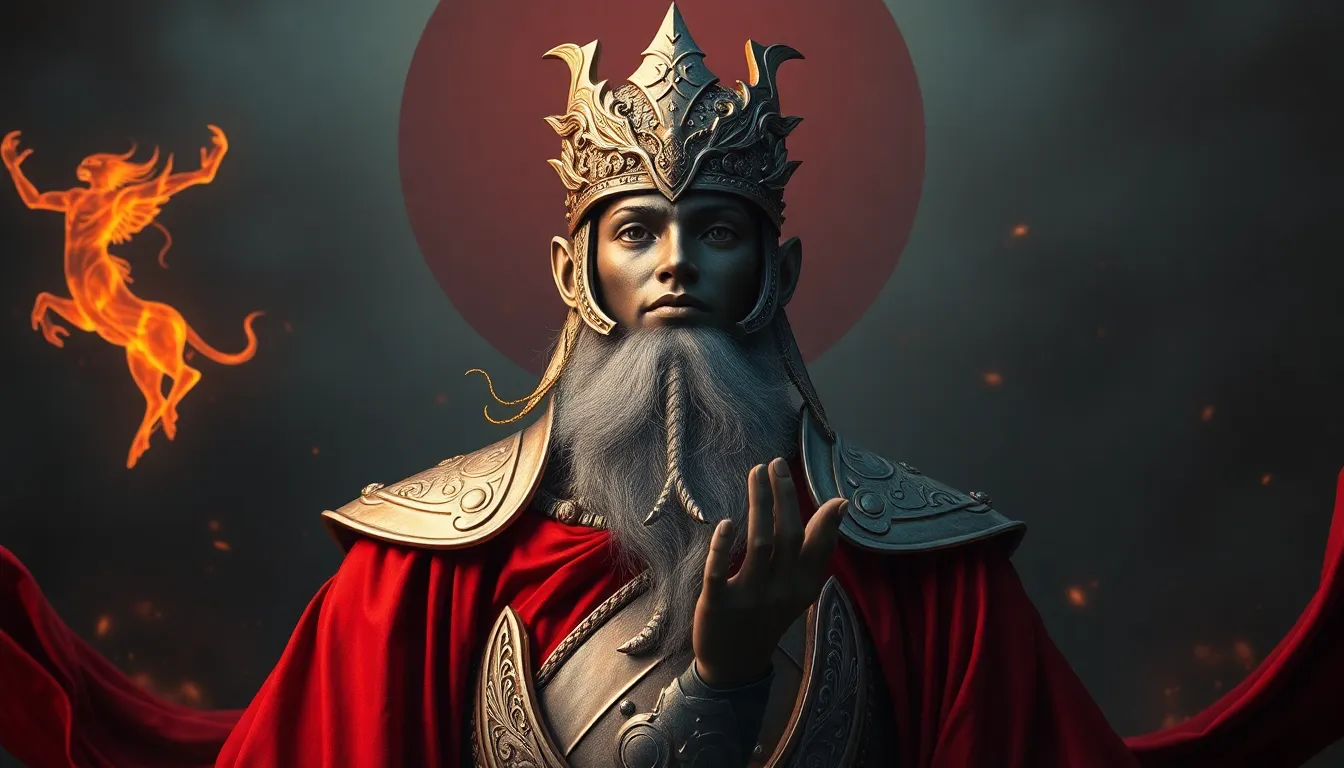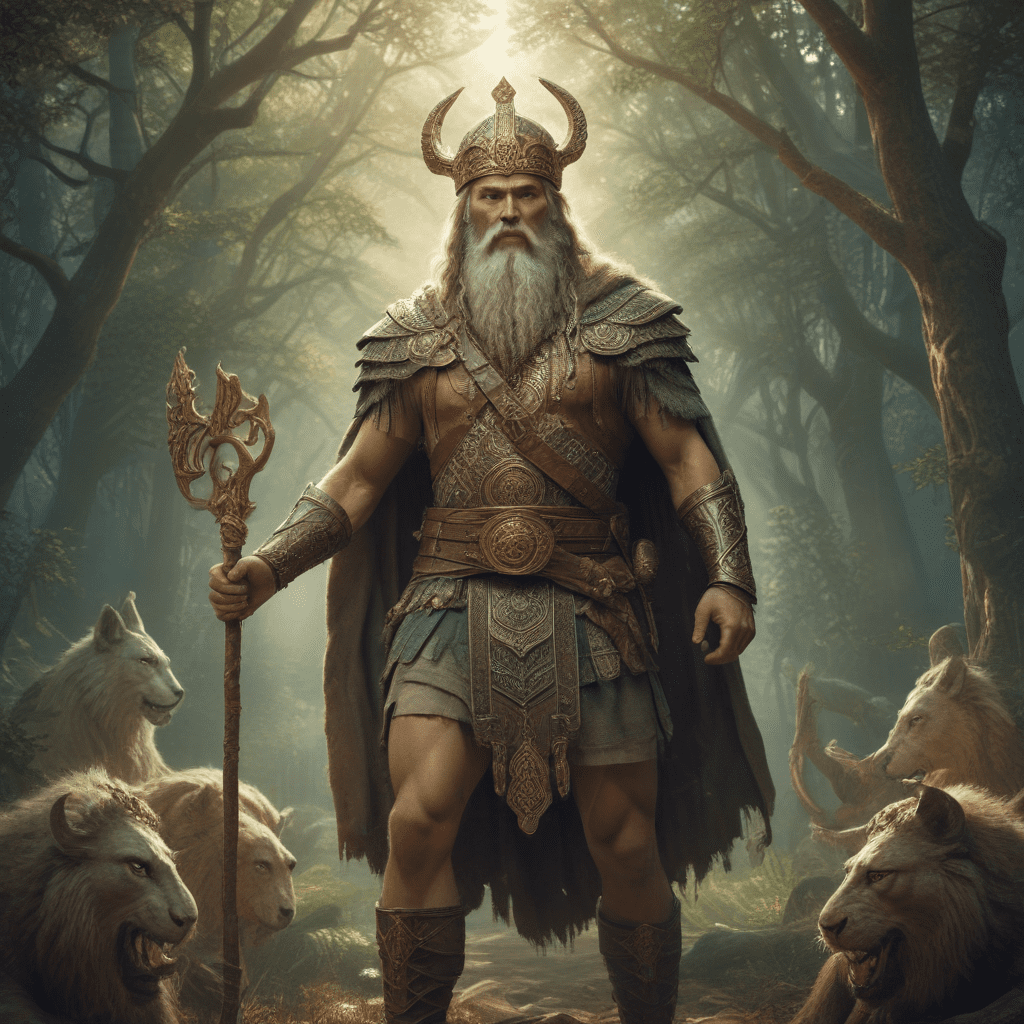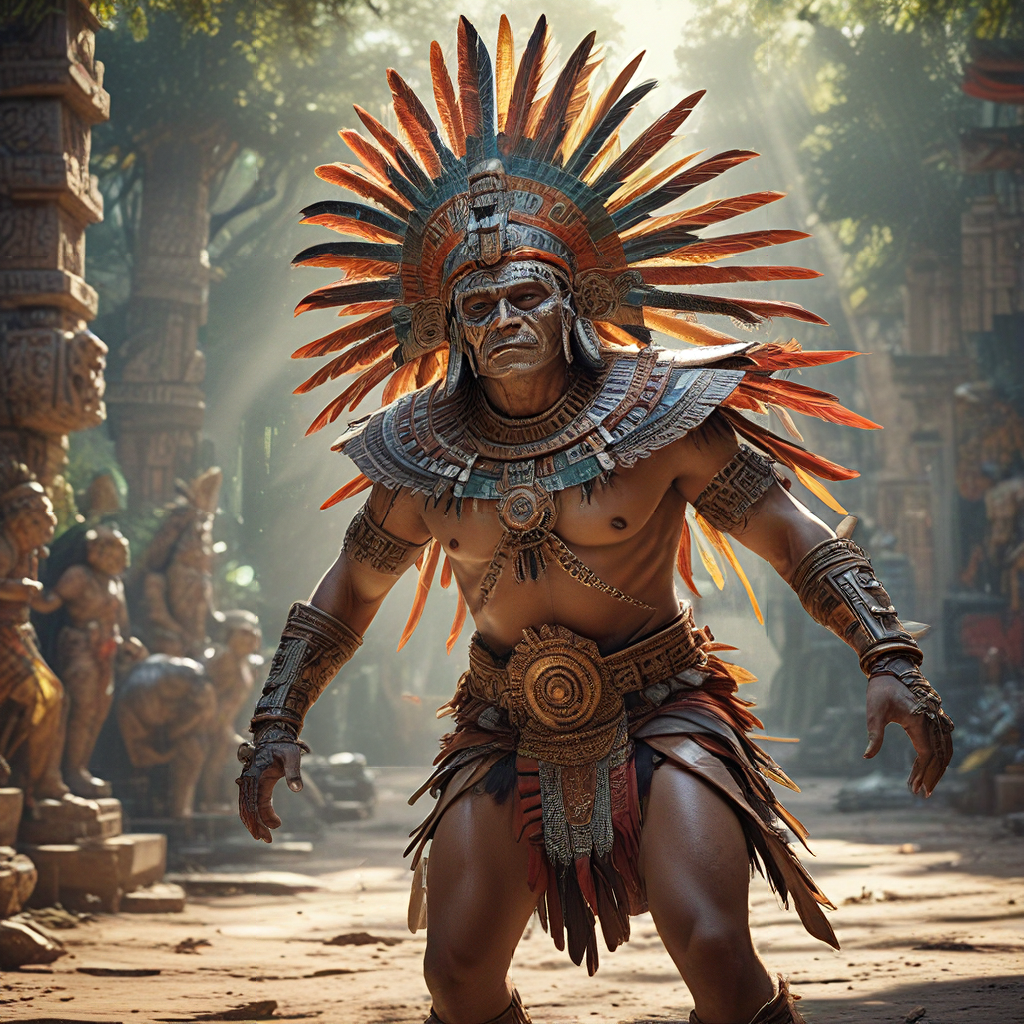The Archetypes of Cultural Heroes: Myths That Define Us
I. Introduction
Cultural heroes occupy a significant space in the collective consciousness of societies around the world. They embody ideals, values, and aspirations, serving as role models and sources of inspiration. These heroes arise in various forms through myths, folklore, and storytelling, reflecting the morals and ethics of their respective cultures.
The concept of archetypes, as proposed by psychologist Carl Jung, refers to universally recognizable symbols and themes that recur across different cultures and eras. In mythology and storytelling, archetypes help shape narratives and influence character development. This article aims to explore various archetypes of cultural heroes, examining their characteristics, significance, and impact on societal values and norms.
II. The Hero’s Journey: A Universal Framework
Joseph Campbell, an influential mythologist, introduced the concept of the monomyth, or the hero’s journey, which outlines a universal pattern found in many narratives across cultures. The hero’s journey typically consists of several stages:
- The Call to Adventure: The hero is invited to leave their ordinary world.
- The Initiation: The hero faces challenges and gains new insights.
- The Return: The hero returns to their home with newfound wisdom.
This framework is relevant as it provides a lens through which to understand how heroes evolve and embody the struggles and triumphs of humanity. By following this journey, cultural narratives can resonate deeply with audiences, reflecting their own experiences and aspirations.
III. The Warrior Archetype: Guardians of Values
The warrior archetype is defined by characteristics such as bravery, strength, and a commitment to protecting the values of their community. Warriors often confront external threats and embody the moral codes of their societies.
Examples of warrior heroes include:
- Achilles: A central figure in Greek mythology known for his unmatched skill in battle.
- Beowulf: A legendary hero from Anglo-Saxon literature who defeats formidable monsters.
The impact of warrior heroes extends beyond their tales of triumph; they shape societal values and norms, instilling ideals of courage, honor, and sacrifice in their cultures.
IV. The Sage Archetype: Wisdom and Guidance
The sage archetype represents wisdom, knowledge, and guidance. Sages often serve as mentors or advisors, providing insight to the protagonists on their journeys.
Notable sage heroes include:
- Merlin: The legendary wizard in Arthurian legend who guides King Arthur.
- Confucius: A Chinese philosopher whose teachings emphasize morality and ethics.
Wisdom plays a crucial role in cultural narratives, influencing decision-making and helping characters navigate complex situations. The sage archetype teaches the importance of reflection, learning, and the pursuit of knowledge.
V. The Trickster Archetype: The Subverter of Norms
The trickster archetype is characterized by qualities such as cunning, playfulness, and a disregard for societal norms. Tricksters often challenge the status quo, providing both insight and chaos in their narratives.
Examples from various mythologies include:
- Loki: A complex figure in Norse mythology known for his mischievous nature.
- Anansi: The spider trickster from African folklore who uses wit to overcome challenges.
Tricksters play a vital role in challenging societal structures and norms, encouraging both skepticism and creativity within cultural narratives.
VI. The Martyr Archetype: Sacrifice for a Greater Good
The martyr archetype embodies the concept of sacrifice for a noble cause. Martyrs often endure suffering or make significant sacrifices to uphold a greater good, inspiring others through their selflessness.
Historical and mythical examples include:
- Joan of Arc: A French heroine who sacrificed her life for her country.
- Christ: Central to Christian belief, representing ultimate sacrifice for humanity’s redemption.
The cultural significance of the martyr archetype lies in its ability to evoke empathy and inspire collective identity, highlighting the power of sacrifice in the pursuit of justice and truth.
VII. The Rebel Archetype: Challengers of the Status Quo
The rebel archetype is defined by its characteristics of defiance and the desire for change. Rebels challenge existing norms and fight against oppression, often leading movements for social justice.
Prominent rebel heroes include:
- Robin Hood: The legendary outlaw who stole from the rich to give to the poor.
- Katniss Everdeen: The protagonist in “The Hunger Games,” symbolizing resistance against tyranny.
The influence of rebellion on social change is profound, as these figures inspire others to question authority and strive for a more equitable society.
VIII. The Caregiver Archetype: Nurturers of Society
The caregiver archetype embodies compassion, nurturing, and selflessness. Caregivers often prioritize the well-being of others, providing support and comfort in times of need.
Examples from mythology and history include:
- Mother Teresa: Known for her humanitarian work and dedication to the poor.
- Demeter: The Greek goddess of agriculture and fertility, symbolizing maternal care.
The importance of care and nurturing in cultural narratives emphasizes the value of empathy and community, reminding societies of the strength found in compassion.
IX. The Creator Archetype: Innovators and Visionaries
The creator archetype is characterized by innovation, imagination, and the drive to bring new ideas to life. Creators often challenge conventional thinking and inspire progress through their vision.
Notable creators include:
- Daedalus: A skilled craftsman and inventor in Greek mythology known for his ingenuity.
- Steve Jobs: Co-founder of Apple Inc., recognized for his revolutionary contributions to technology.
The role of creativity and innovation in cultural narratives highlights the importance of visionaries in shaping the future, encouraging societies to embrace change and pursue new possibilities.



